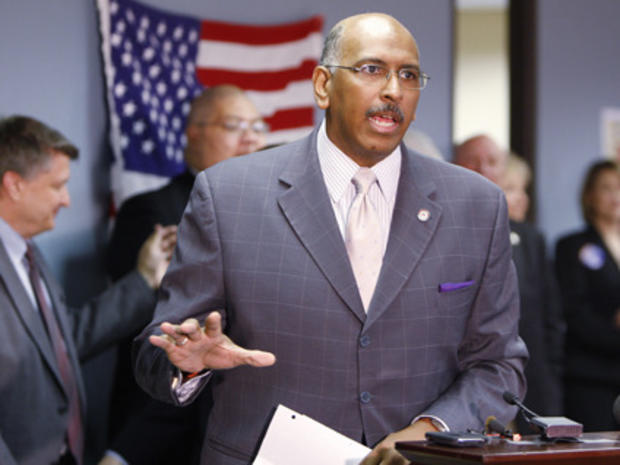As Steele's RNC Falls, Rival Groups Rise
Mississippi Gov. Haley Barbour, the uber-connected chair of the Republican Governor's Association and a potential 2012 GOP presidential candidate, was asked on Friday about Republican National Committee chairman Michael Steele's comments largely contradicting the dominant Republican position on the war in Afghanistan.
"Anything that changes the subject from the bad, unpopular policies being pursued by the Obama administration and the Democratic Congress -- anything that takes the spotlight off that -- is bad for Republican candidates," he told National Review Online. "Any gaffe that changes the attention is bad."
Bad for the party, maybe. But not exactly bad for Barbour's RGA, which in the second quarter of this year raised nearly $19 million -- a new record. The group has already raised as much this year ($28 million) as it did in the last midterm election year, 2006. That's partly attributable to Steele's repeated gaffe's as RNC chairman, which have driven money that would traditionally gone to the RNC to other sources.
As the RGA and outside groups like American Crossroads (a Karl Rove-backed organization that raised more than $8 million in June, $2 million more than the RNC) rake in the donations amid a Republican fundraising boom driven by anti-Obama sentiment, the RNC concedes that its fundraising has fallen off. Donors, an unnamed GOP strategist told the Washington Post, "want to invest their money to win seats. They don't trust this guy [Steele] to invest their money wisely. . . . They just don't think the RNC is a smart place to invest their money right now."
The RNC counters criticism by noting that it has outraised the Democratic National Committee in more than half of months this election cycle and that it has more cash-on-hand that at this point in the 1994 election cycle, when the GOP took over Congress. But the group has revised its budget downward and has reduced funds for voter mobilization, prompting outside groups to step in to try to fill the void.
The upshot of all this may be that the Republican Party is becoming more decentralized than ever before, with a raft of alternative power centers -- American Crossroads, the RGA, The U.S. Chamber of Commerce, the American Action Network, and even Sarah Palin among them. And that could have serious long-term consequences for the party, since it means less coordination over the deployment of resources.
Establishment Republicans, like their Democratic counterparts, have traditionally been relatively pragmatic, favoring candidates likely to win in general elections over those who might appeal to the base but could alienate the overall electorate. But without control of the purse strings, the establishment figures in the RNC have less say in who will represent Republicans to the American people.
Candidates that make mainstream Republicans queasy have already started popping up around the country - among them Kentucky GOP Senate nominee Rand Paul, Nevada GOP Senate nominee Sharron Angle, and expected Florida GOP Senate nominee Marco Rubio. All three are in races traditional Republican candidates would be expected to win - and all three are in at least some danger of falling to Democratic opponents (or, in Rubio's case, a Republican-turned-independent).
Many (particularly those in the Tea Party movement) would say Republicans are better off with the RNC ending up in a diminished role: It means, they suggest, that Washington insiders will have a harder time overriding the will of the people out of some cynical political calculation. But proponents of a strong RNC counter that all that voter enthusiasm could go wasted if there isn't a centralized authority keeping the party from essentially eating itself.
One positive factor Republicans can look to in this election cycle is the fact that there could well be enough money coming in overall to override any handicap due to a less-powerful invisible hand at the top. A chart being circulated by Democrats over the past few weeks, first reported by Sam Stein at the Huffington Post, shows that outside Republican groups are planning to spend up to $300 million to influence the 2010 midterm elections - a staggering number that has Democrats, who were already expecting to lose seats, worried that Steele's struggles will end up a minor ripple in an ocean of GOP cash.
